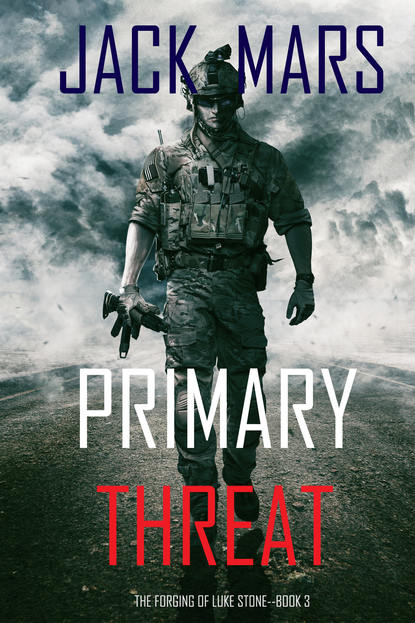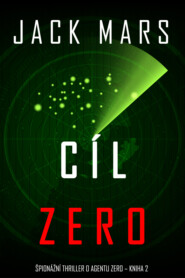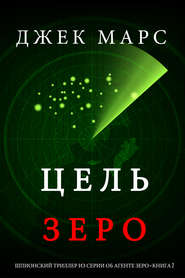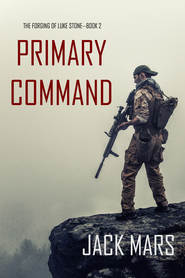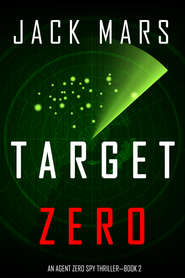По всем вопросам обращайтесь на: info@litportal.ru
(©) 2003-2024.
✖
Primary Threat
Автор
Год написания книги
2020
Настройки чтения
Размер шрифта
Высота строк
Поля
It was cold out, but Big Dog didn’t feel the cold anymore. And it was nowhere near as cold as it was going to be. All around him was the vastness of the Arctic—gray sky, dark water punctuated with bright white ice, as far as the eye could see.
He smoked a cigarette and watched a double-hulled personnel boat working its way through the ice floes in the bleak light of late afternoon. You couldn’t call it sunlight. The cloud cover was constant now, like a heavy blanket, and Big Dog hadn’t seen a speck of sunlight in at least a week. It was easy to lose track of the sun. It was easy to lose track of everything.
“They’re early,” Big Dog said out loud to himself.
That boat didn’t sit quite right with him. It gave him an uncertain feeling in his gut. It looked a lot like a boat that would bring crew members out to the rig after a break. In fact, from here he could make out at least a dozen men on the deck of the boat, preparing to disembark when they reached the dock.
But shift changes didn’t happen early, and boats didn’t appear unscheduled and unannounced. Not out here. He tried to run through the possible reasons for that boat in his mind. But he was hung over again, and the jackhammer pain in his head, combined with the brain fog from lack of sleep, made it hard to think.
No matter. It would all get worked out when they got here. It was just barely possible that someone made a mistake. A lot of people in the Arctic had no idea what day it was. No one here spoke of Monday or Tuesday or Wednesday or Thursday. What would be the point? Every twelve hours was the same, working or sleeping, working or sleeping. Time blended, blurred, faded into hard steel and cold white oblivion.
Whoever they were, no matter what they were doing, they would have to come talk to Big Dog. Big Dog wasn’t as mean as he once had been. He had grown up on the reservation, what he called half Blackfeet Indian, and half “American.” And once upon a time, he’d been as mean as they came.
Six feet, seven inches tall, 250 pounds when he was light, 275 when he was carrying beer muscle. Past fifty years old now, he was easier, less quick to anger, possibly even a little bit compassionate. Still, he was the biggest man out this way, maybe the biggest man in the Arctic, and this was his oil rig.
Big Dog had been on the crew that built this thing. For five years, he had been the crew foreman. He was not a geologist, he was not the driller, and he was not a college-educated company man, but make no mistake. There were more than ninety men on this rig at any given time, and every single one of them, even the bosses, reported to him.
It was a half-billion-dollar hunk of steel, the Martin Frobisher—“The Bish,” as the roughnecks who worked it, and lived on it for two weeks at a time, tended to call it. The Bish was a royal blue and yellow tower, platforms and blocks of machinery stacked high over the hole where the drill entered the ocean floor. The top of this tower stood forty stories above the water. It was positioned more than 250 miles above the Arctic Circle, on a six-acre man-made island just offshore from the Arctic National Wildlife Refuge.
The Bish was owned by a small company called Innovate Natural Resources. Innovate had contracts with all the biggies—BP, ExxonMobil, ConocoPhillips—but this was Innovate’s own rig. Big Dog often thought the heavy hitters let Innovate operate out here because it gave them plausible deniability about what was going on. Innovate did the dirty work, and if anyone found out about it, Innovate would take the fall.
The island was reachable by ice road over the frozen sea most of the year. But not in summer, and not even in September. Not anymore. The permanent ice was gone—melted—and the water was open all summer. With summer over, the seasonal ice was starting to fill in.
As Big Dog watched, the boat pushed through the last of it and pulled up to the dock. A couple of Bish dockworkers began to tie the boat’s lines when a strange thing happened. It was so strange that several seconds passed before Big Dog’s mind could grasp it.
Men jumped off the boat and shot the dock hands.
CRACK! came the sharp report of gunfire, echoing across the distance in the still, cold air. In the fading light, miniature men fell dead with each shot.
CRACK!
CRACK!
Suddenly Big Dog was running. His heavy boots pounded across the iron rails of the deck, and he burst through the doors of the doghouse, the command center. It was like the pilot house of a ship, only instead of watching the open sea, men watched the drill all day. There were three men inside this time of day. As Big Dog came in, the men were already up and moving, breaking into the cabinet where the rifles were stored. The rifles were meant for polar bears, not invasions.
“What the hell is going on?” Big Dog said.
A heavyset man with glasses, Aaron, a company man, tossed a heavy rifle to Big Dog. It had a banana magazine poking from the bottom of it, and a scope up top.
Big Dog chambered a round.
Aaron shook his head. “No idea. We tried to raise them on the radio, but no answer. We figured we’d wait until they got here. Then they got here and started shooting.”
He gestured at the closed circuit security screens.
On one screen, a group of men moved up the docks. They were dressed in black, for cold weather, faces covered except for the eyes, and draped with guns and ammunition belts. As Big Dog watched, one of them approached a man writhing on the dock, pulled a pistol, and shot the man in the head.
“Aw no,” Big Dog said.
It hurt him. It hurt him to his core. And it made him angry. This was his rig, and those were his men being killed out there. During his decades in the Arctic oil industry, nothing like this had ever happened. Were there fights? Sure. Fist fights, knife fights, fights with pool cues and iron pipes. Gunfights, even? Yes, once in a rare while, someone pulled a gun.
But this?
No way.
And it wouldn’t stand.
The men in the control room stared at Big Dog.
The first thing Big Dog did when he left the reservation at the age of seventeen, he joined the Marine Corps. They spotted his eye right away, and they made him a sniper.
“The sons of bitches,” he said.
He didn’t care who they were or what they thought they were doing, it wasn’t going to stand. He went back out onto the deck, rifle cradled in his thick hands.
Below him, the group of men was running through the compound now, running for the Quonset huts that served as housing, the rec hall, the mess hall. Clarion alarms were screeching, and men were starting to emerge from everywhere, running. There was confusion, and there was fear.
Shooting came easy to Big Dog. Men had their skills, he supposed, the things that came easy. This was one of his. He sighted through the scope and put one of the black-jacketed invaders in the middle of the circle. The man was RIGHT THERE, so close Big Dog could reach out and touch him. Big Dog squeezed the trigger. The rifle bucked in his hands and pushed against his shoulder.
BANG!
The sound echoed far away across the ice and water.
It was a center mass hit, chest high. The man threw up his arms and dropped his gun. He was knocked backward, off his feet, and he tumbled across the frozen ground.
Not good. That told Big Dog the man was wearing body armor. The bullet didn’t pierce him—it knocked him backward. He was going to feel that thing for a while, and he was going to be sore as hell tomorrow, but he wasn’t going to be dead.
Not yet, anyway.
Big Dog ejected the spent shell and chambered another round. He sighted again and found his man crawling along the ground.
He put the circle around the man’s head.
BANG.
The echo drifted away across the vast, empty wastes. Blood sprayed where the man’s head had just been. Automatically, without thought, Big Dog ejected the shell and chambered a new round.
Next.
Another black-jacketed bastard kneeled by the dead guy. He seemed to be checking vital signs. Checking them for what? Half the man’s head was gone.
Big Dog smiled and put the new guy’s head in the circle, dead center. The guy was an idiot.
BANG.
But not anymore.
The second man’s head exploded just as the first had done, a spray of red in the air, like the white spray from the blowhole of a humpback whale just below the surface. The two dead men slumped together now, black mounds on white ground.
He smoked a cigarette and watched a double-hulled personnel boat working its way through the ice floes in the bleak light of late afternoon. You couldn’t call it sunlight. The cloud cover was constant now, like a heavy blanket, and Big Dog hadn’t seen a speck of sunlight in at least a week. It was easy to lose track of the sun. It was easy to lose track of everything.
“They’re early,” Big Dog said out loud to himself.
That boat didn’t sit quite right with him. It gave him an uncertain feeling in his gut. It looked a lot like a boat that would bring crew members out to the rig after a break. In fact, from here he could make out at least a dozen men on the deck of the boat, preparing to disembark when they reached the dock.
But shift changes didn’t happen early, and boats didn’t appear unscheduled and unannounced. Not out here. He tried to run through the possible reasons for that boat in his mind. But he was hung over again, and the jackhammer pain in his head, combined with the brain fog from lack of sleep, made it hard to think.
No matter. It would all get worked out when they got here. It was just barely possible that someone made a mistake. A lot of people in the Arctic had no idea what day it was. No one here spoke of Monday or Tuesday or Wednesday or Thursday. What would be the point? Every twelve hours was the same, working or sleeping, working or sleeping. Time blended, blurred, faded into hard steel and cold white oblivion.
Whoever they were, no matter what they were doing, they would have to come talk to Big Dog. Big Dog wasn’t as mean as he once had been. He had grown up on the reservation, what he called half Blackfeet Indian, and half “American.” And once upon a time, he’d been as mean as they came.
Six feet, seven inches tall, 250 pounds when he was light, 275 when he was carrying beer muscle. Past fifty years old now, he was easier, less quick to anger, possibly even a little bit compassionate. Still, he was the biggest man out this way, maybe the biggest man in the Arctic, and this was his oil rig.
Big Dog had been on the crew that built this thing. For five years, he had been the crew foreman. He was not a geologist, he was not the driller, and he was not a college-educated company man, but make no mistake. There were more than ninety men on this rig at any given time, and every single one of them, even the bosses, reported to him.
It was a half-billion-dollar hunk of steel, the Martin Frobisher—“The Bish,” as the roughnecks who worked it, and lived on it for two weeks at a time, tended to call it. The Bish was a royal blue and yellow tower, platforms and blocks of machinery stacked high over the hole where the drill entered the ocean floor. The top of this tower stood forty stories above the water. It was positioned more than 250 miles above the Arctic Circle, on a six-acre man-made island just offshore from the Arctic National Wildlife Refuge.
The Bish was owned by a small company called Innovate Natural Resources. Innovate had contracts with all the biggies—BP, ExxonMobil, ConocoPhillips—but this was Innovate’s own rig. Big Dog often thought the heavy hitters let Innovate operate out here because it gave them plausible deniability about what was going on. Innovate did the dirty work, and if anyone found out about it, Innovate would take the fall.
The island was reachable by ice road over the frozen sea most of the year. But not in summer, and not even in September. Not anymore. The permanent ice was gone—melted—and the water was open all summer. With summer over, the seasonal ice was starting to fill in.
As Big Dog watched, the boat pushed through the last of it and pulled up to the dock. A couple of Bish dockworkers began to tie the boat’s lines when a strange thing happened. It was so strange that several seconds passed before Big Dog’s mind could grasp it.
Men jumped off the boat and shot the dock hands.
CRACK! came the sharp report of gunfire, echoing across the distance in the still, cold air. In the fading light, miniature men fell dead with each shot.
CRACK!
CRACK!
Suddenly Big Dog was running. His heavy boots pounded across the iron rails of the deck, and he burst through the doors of the doghouse, the command center. It was like the pilot house of a ship, only instead of watching the open sea, men watched the drill all day. There were three men inside this time of day. As Big Dog came in, the men were already up and moving, breaking into the cabinet where the rifles were stored. The rifles were meant for polar bears, not invasions.
“What the hell is going on?” Big Dog said.
A heavyset man with glasses, Aaron, a company man, tossed a heavy rifle to Big Dog. It had a banana magazine poking from the bottom of it, and a scope up top.
Big Dog chambered a round.
Aaron shook his head. “No idea. We tried to raise them on the radio, but no answer. We figured we’d wait until they got here. Then they got here and started shooting.”
He gestured at the closed circuit security screens.
On one screen, a group of men moved up the docks. They were dressed in black, for cold weather, faces covered except for the eyes, and draped with guns and ammunition belts. As Big Dog watched, one of them approached a man writhing on the dock, pulled a pistol, and shot the man in the head.
“Aw no,” Big Dog said.
It hurt him. It hurt him to his core. And it made him angry. This was his rig, and those were his men being killed out there. During his decades in the Arctic oil industry, nothing like this had ever happened. Were there fights? Sure. Fist fights, knife fights, fights with pool cues and iron pipes. Gunfights, even? Yes, once in a rare while, someone pulled a gun.
But this?
No way.
And it wouldn’t stand.
The men in the control room stared at Big Dog.
The first thing Big Dog did when he left the reservation at the age of seventeen, he joined the Marine Corps. They spotted his eye right away, and they made him a sniper.
“The sons of bitches,” he said.
He didn’t care who they were or what they thought they were doing, it wasn’t going to stand. He went back out onto the deck, rifle cradled in his thick hands.
Below him, the group of men was running through the compound now, running for the Quonset huts that served as housing, the rec hall, the mess hall. Clarion alarms were screeching, and men were starting to emerge from everywhere, running. There was confusion, and there was fear.
Shooting came easy to Big Dog. Men had their skills, he supposed, the things that came easy. This was one of his. He sighted through the scope and put one of the black-jacketed invaders in the middle of the circle. The man was RIGHT THERE, so close Big Dog could reach out and touch him. Big Dog squeezed the trigger. The rifle bucked in his hands and pushed against his shoulder.
BANG!
The sound echoed far away across the ice and water.
It was a center mass hit, chest high. The man threw up his arms and dropped his gun. He was knocked backward, off his feet, and he tumbled across the frozen ground.
Not good. That told Big Dog the man was wearing body armor. The bullet didn’t pierce him—it knocked him backward. He was going to feel that thing for a while, and he was going to be sore as hell tomorrow, but he wasn’t going to be dead.
Not yet, anyway.
Big Dog ejected the spent shell and chambered another round. He sighted again and found his man crawling along the ground.
He put the circle around the man’s head.
BANG.
The echo drifted away across the vast, empty wastes. Blood sprayed where the man’s head had just been. Automatically, without thought, Big Dog ejected the shell and chambered a new round.
Next.
Another black-jacketed bastard kneeled by the dead guy. He seemed to be checking vital signs. Checking them for what? Half the man’s head was gone.
Big Dog smiled and put the new guy’s head in the circle, dead center. The guy was an idiot.
BANG.
But not anymore.
The second man’s head exploded just as the first had done, a spray of red in the air, like the white spray from the blowhole of a humpback whale just below the surface. The two dead men slumped together now, black mounds on white ground.





